-
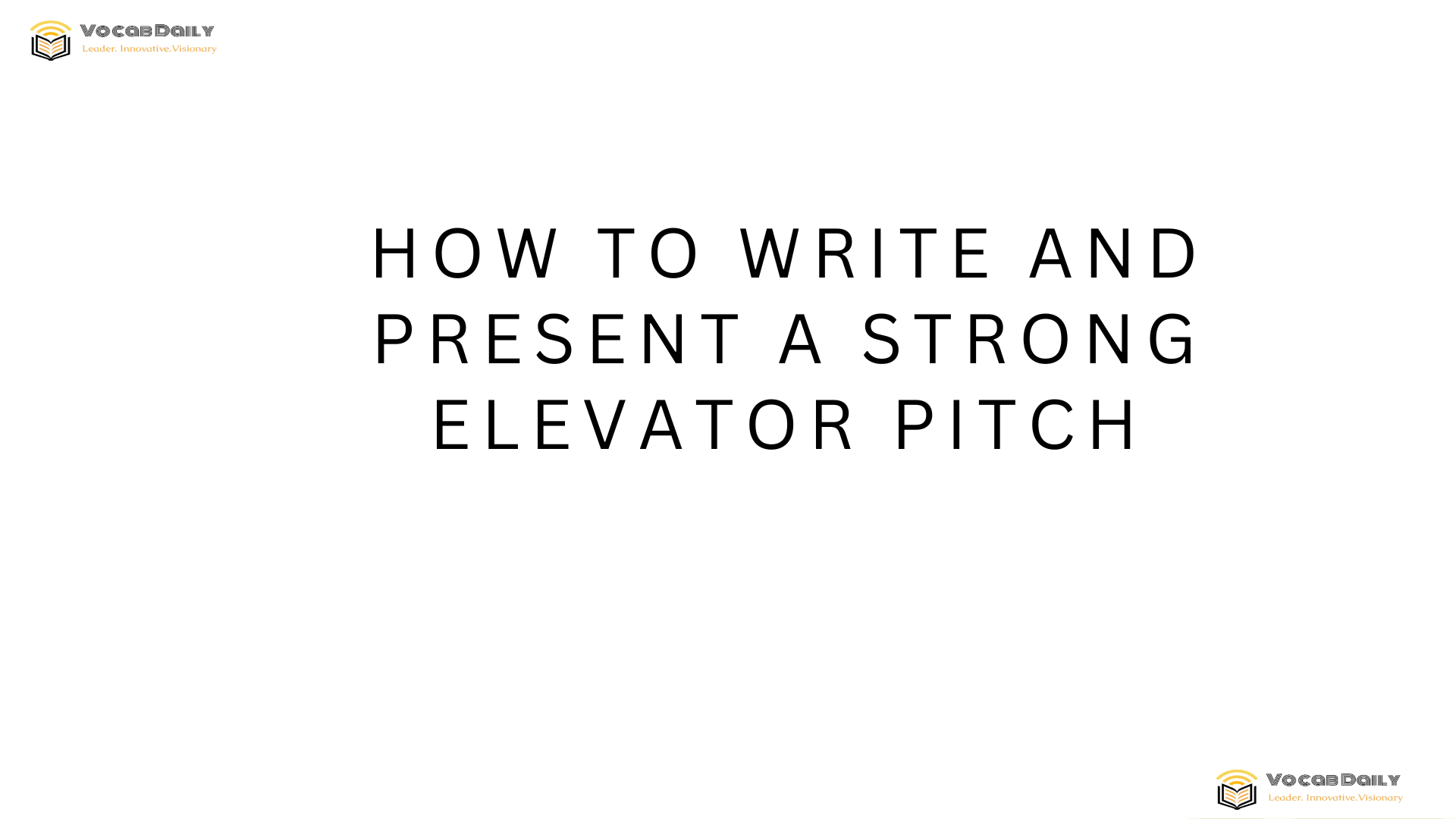
How to Write and Present a Strong Elevator Pitch
•
How to Write and Present a Strong Elevator Pitch Crafting a compelling elevator pitch is an essential skill for job seekers and professionals alike. In the context of English for Job Interviews, a well-prepared elevator pitch can set you apart by clearly communicating who you are, what you do, and why you are the…
-
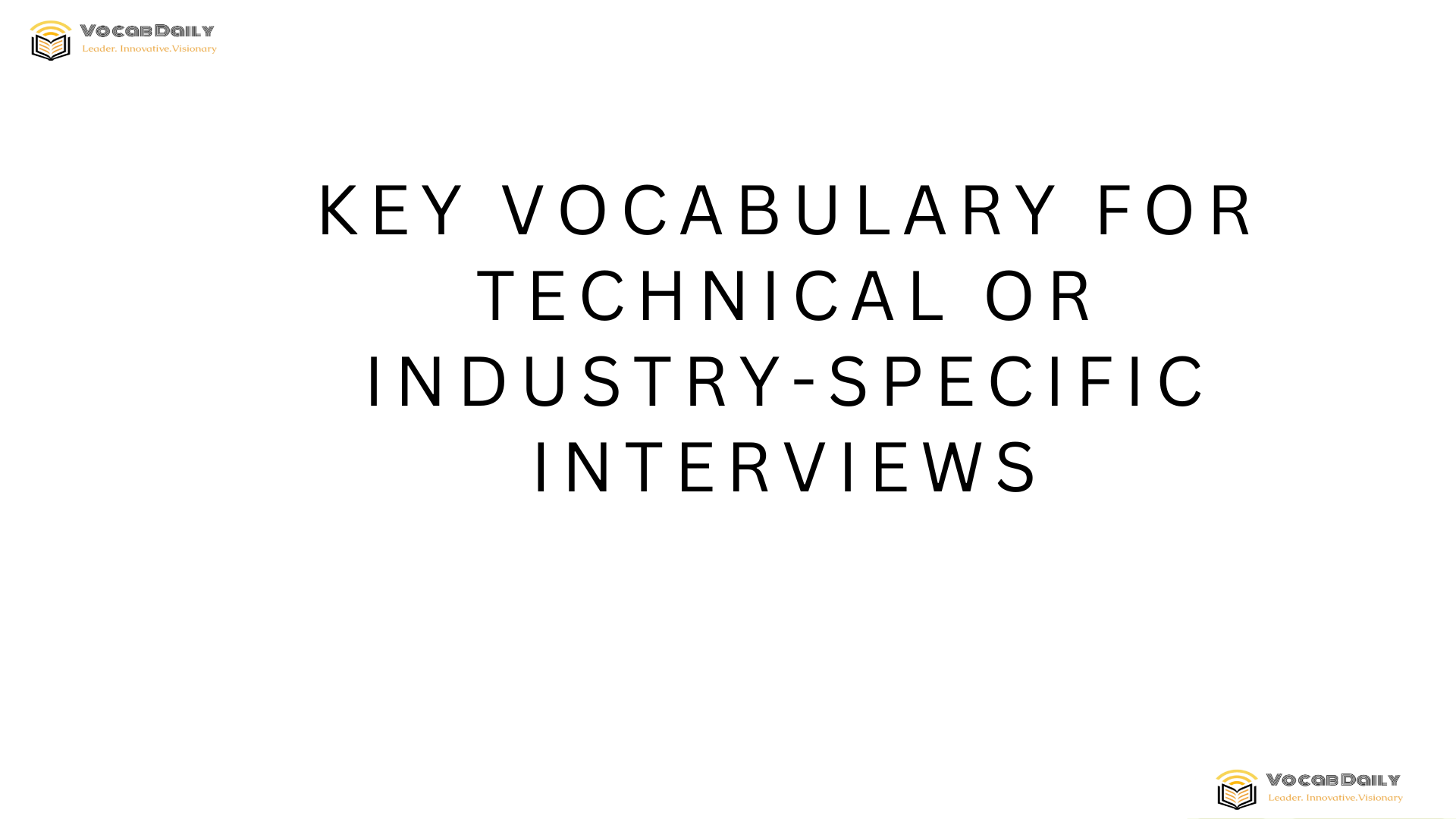
Key Vocabulary for Technical or Industry-Specific Interviews
•
Key Vocabulary for Technical or Industry-Specific Interviews Preparing for a technical or industry-specific interview requires more than just understanding your field; it also demands a good command of the vocabulary commonly used in these environments. Whether you are interviewing for a position in IT, engineering, healthcare, finance, or any specialized sector, knowing the right…
-
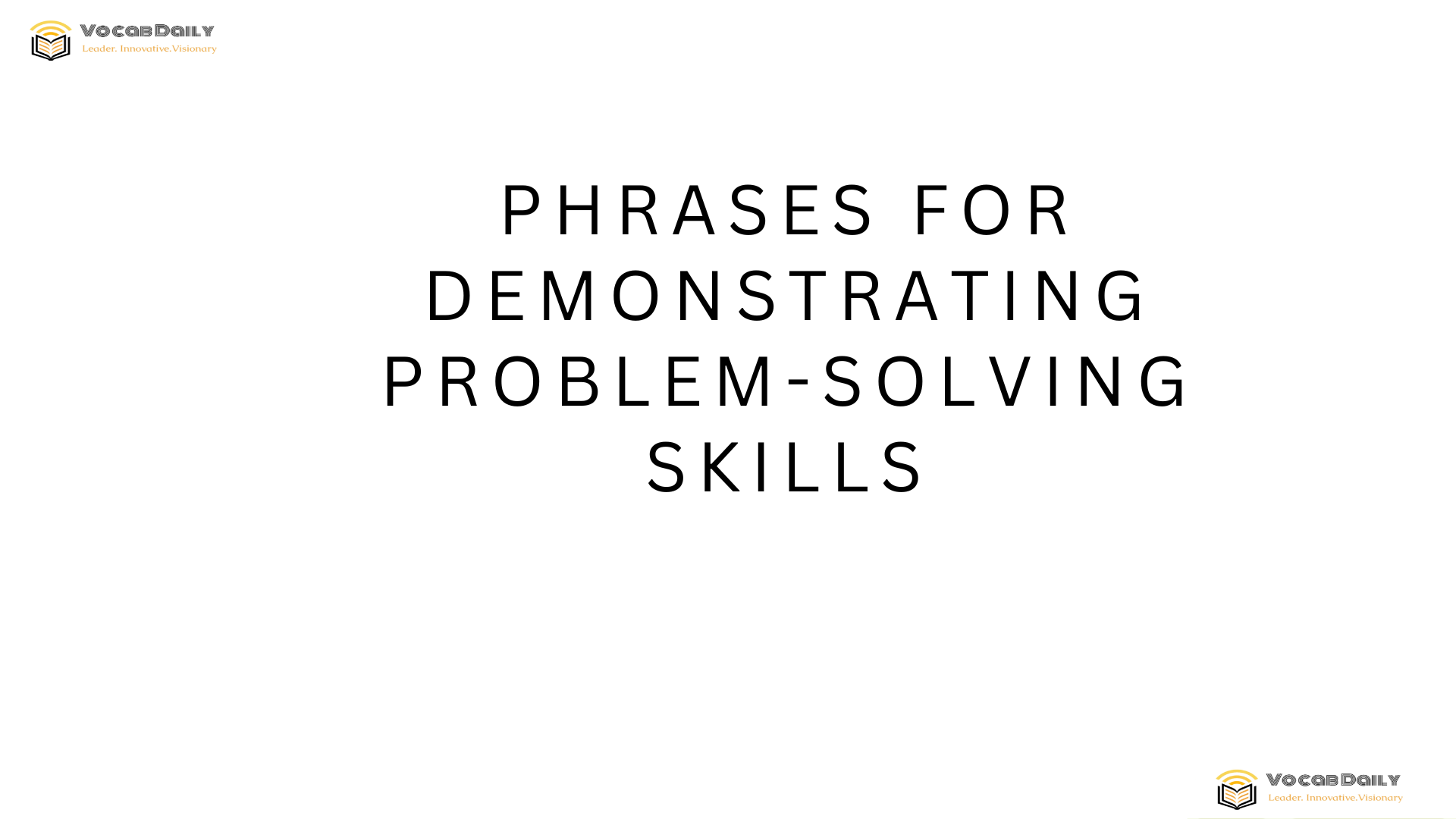
Phrases for Demonstrating Problem-Solving Skills
•
Why Demonstrating Problem-Solving Skills Matters in Job Interviews In today’s competitive job market, employers place significant importance on candidates who can showcase strong problem-solving skills. These abilities demonstrate your capability to handle challenges, think analytically, and contribute effectively to team projects or organizational goals. During interviews, articulating your problem-solving skills with well-crafted phrases can…
-
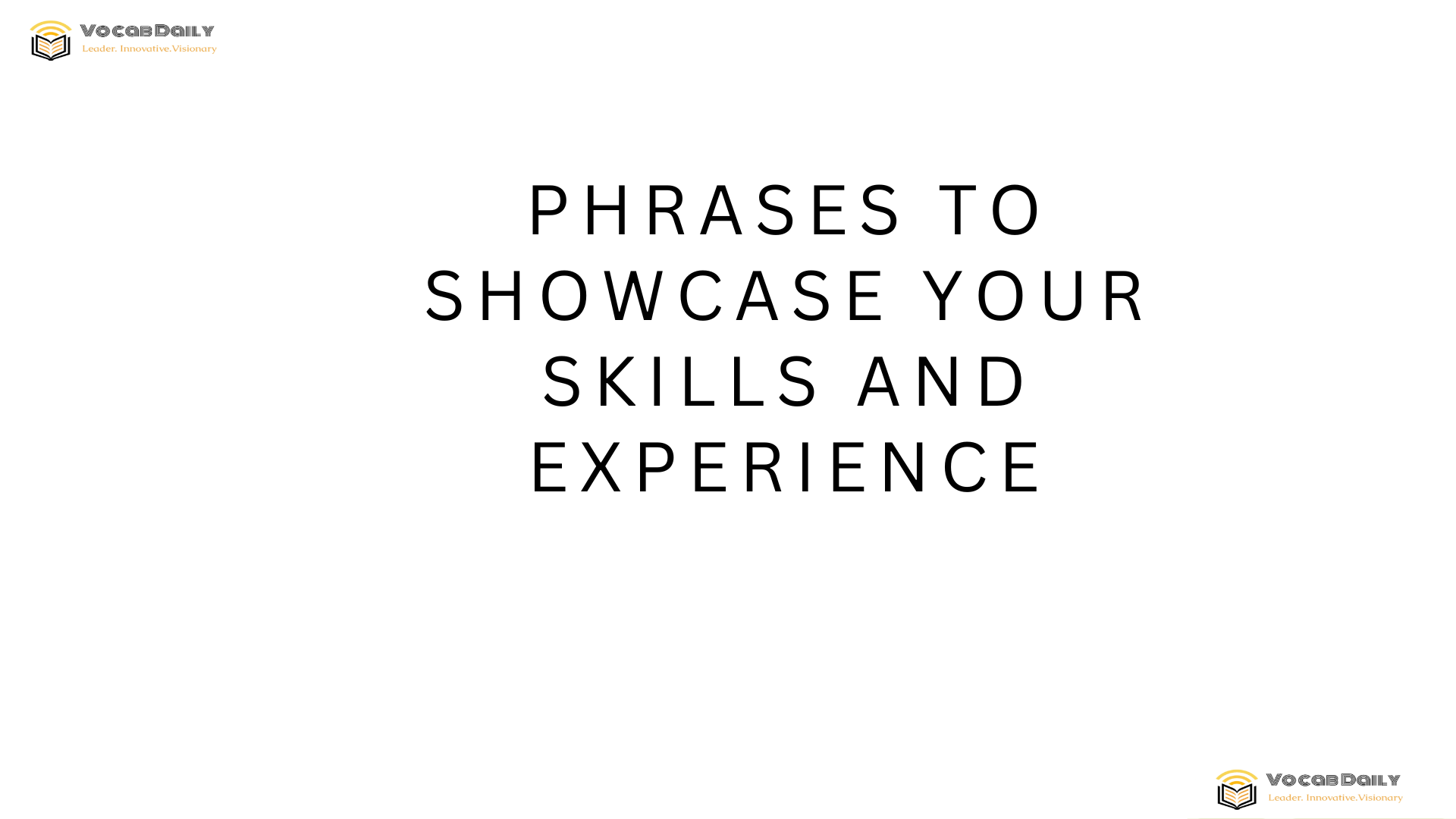
Phrases to Showcase Your Skills and Experience
•
Phrases to Showcase Your Skills and Experience Expressing Your Strengths Clearly When interviewing for a job, highlighting your skills and experience effectively can make a significant difference. Using precise phrases helps you communicate your abilities with confidence and clarity. Start by framing your strengths in a way that resonates with the employer’s needs. For…
-
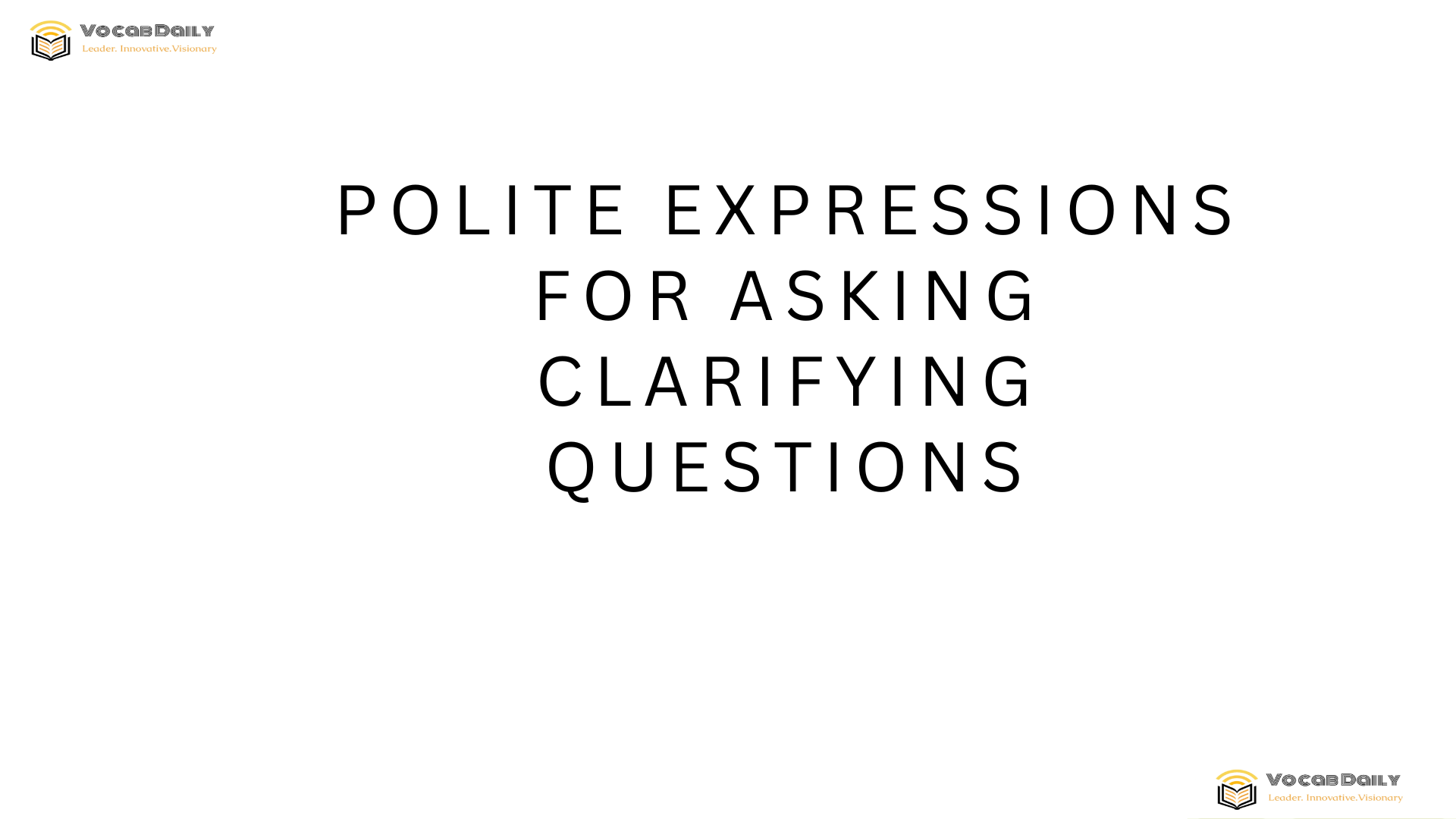
Polite Expressions for Asking Clarifying Questions
•
Polite Expressions for Asking Clarifying Questions In job interviews, effective communication is key to making a positive impression. One important aspect of communication is the ability to ask clarifying questions politely. Clarifying questions ensure you fully understand the interviewer’s points and demonstrate your attentiveness, critical thinking, and professionalism. This article explores various polite expressions…
-
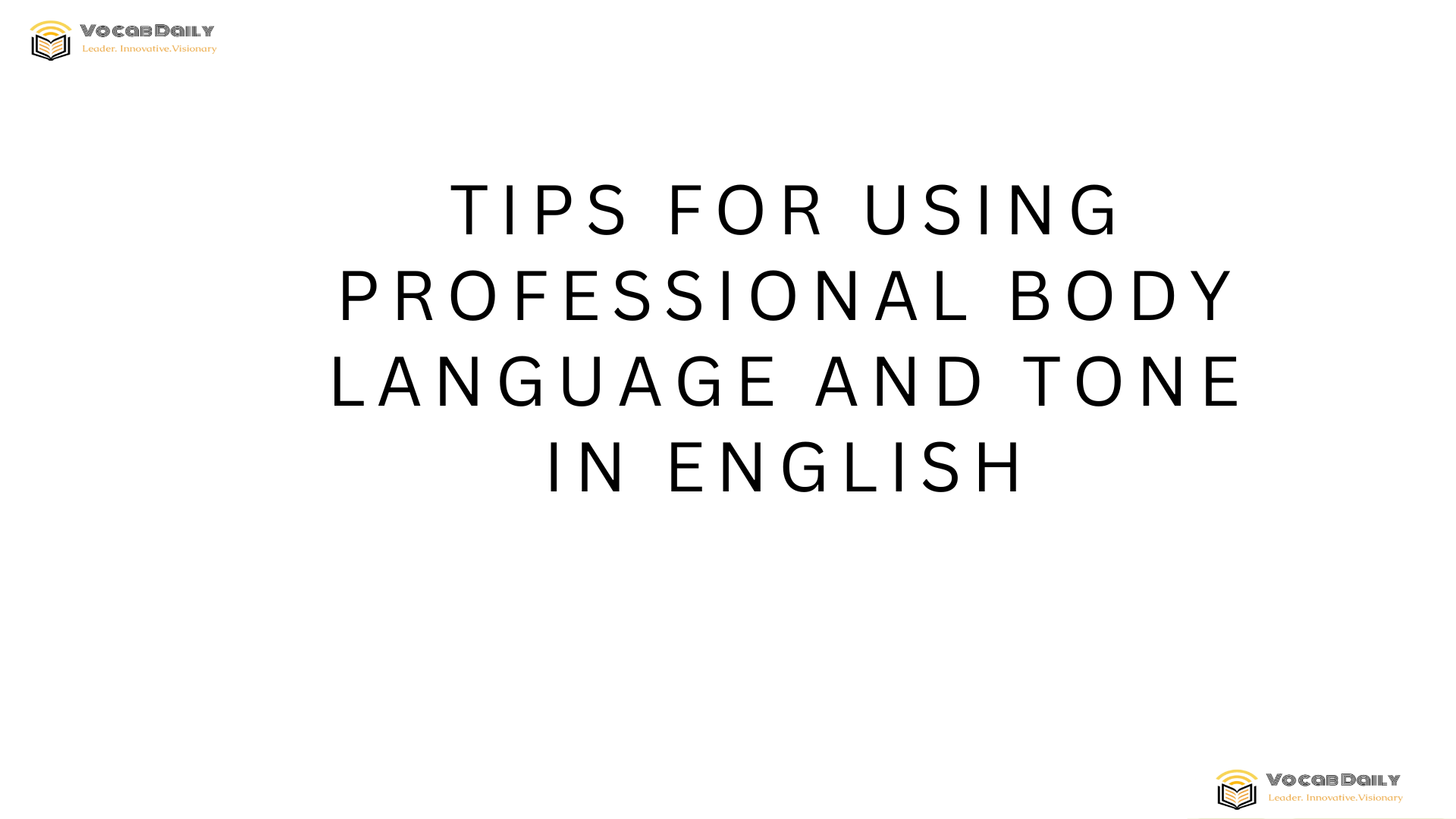
Tips for Using Professional Body Language and Tone in English
•
Understanding the Importance of Professional Body Language When preparing for an English-speaking job interview, mastering professional body language is just as important as practicing your verbal responses. Body language conveys confidence, attentiveness, and professionalism without a single word. Recruiters often rely on these nonverbal cues to form first impressions. Using appropriate facial expressions, maintaining…
-
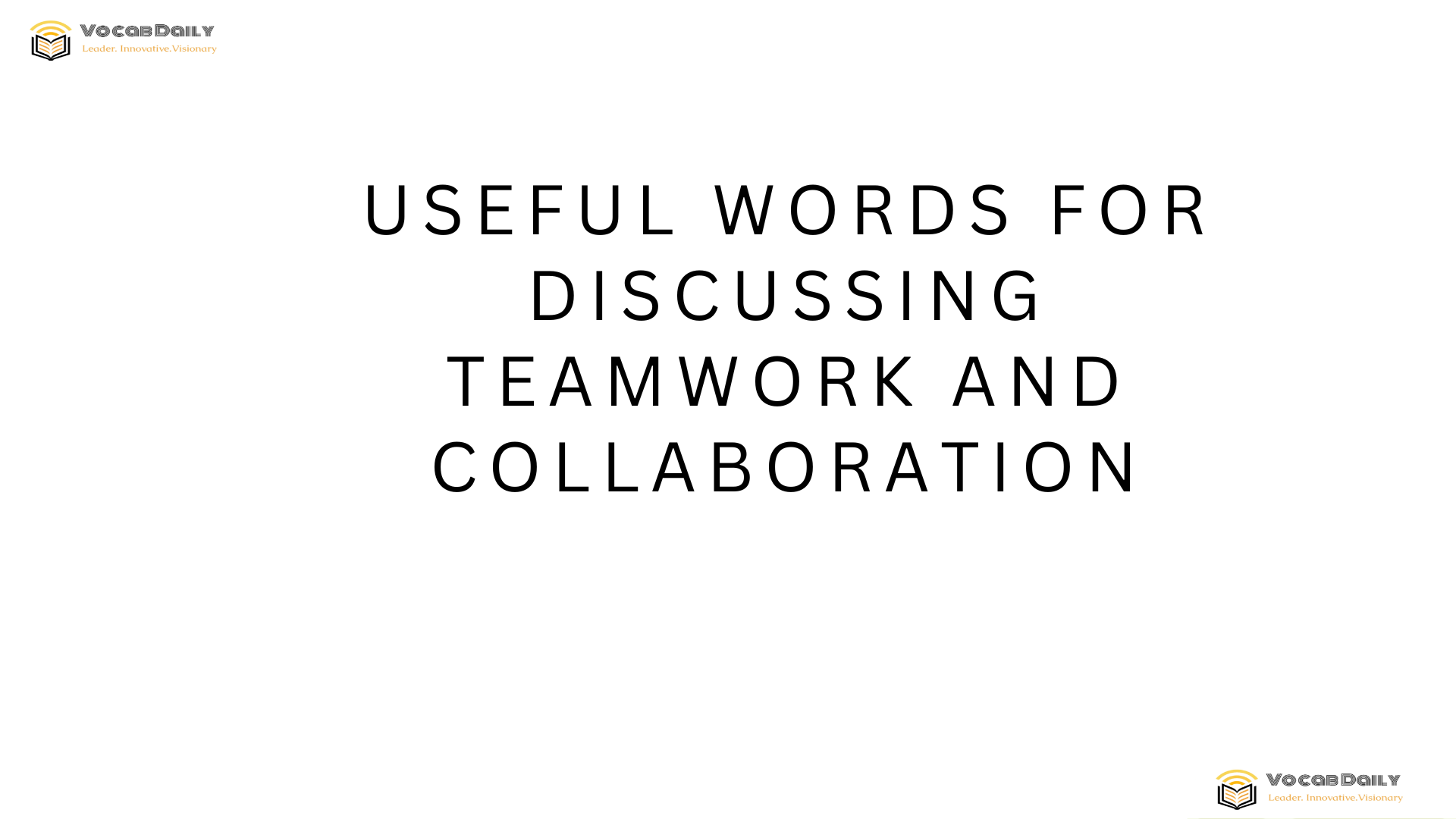
Useful Words for Discussing Teamwork and Collaboration
•
Essential Vocabulary for Teamwork and Collaboration When preparing for job interviews, especially for roles that emphasize working with others, being able to discuss teamwork and collaboration clearly and effectively is crucial. Employers want candidates who not only work well with others but also understand important concepts and vocabulary related to group dynamics. In this…
-
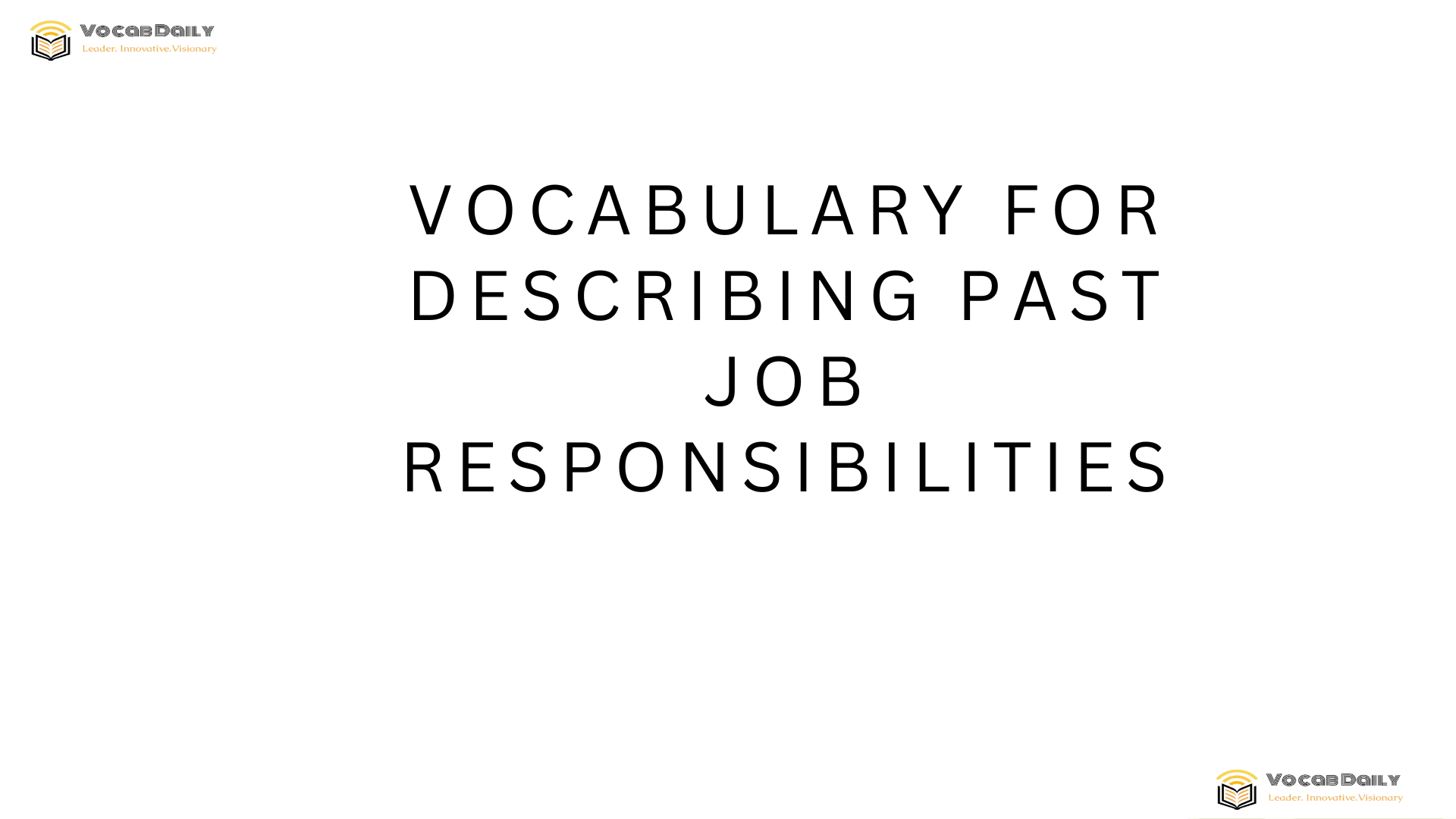
Vocabulary for Describing Past Job Responsibilities
•
Why Choosing the Right Vocabulary Matters When preparing for job interviews, effectively describing your past job responsibilities is crucial. The words you choose not only showcase your skills and experience but also demonstrate your communication ability and professionalism. Using precise, dynamic vocabulary helps to create a strong impression on potential employers and highlights your…
-
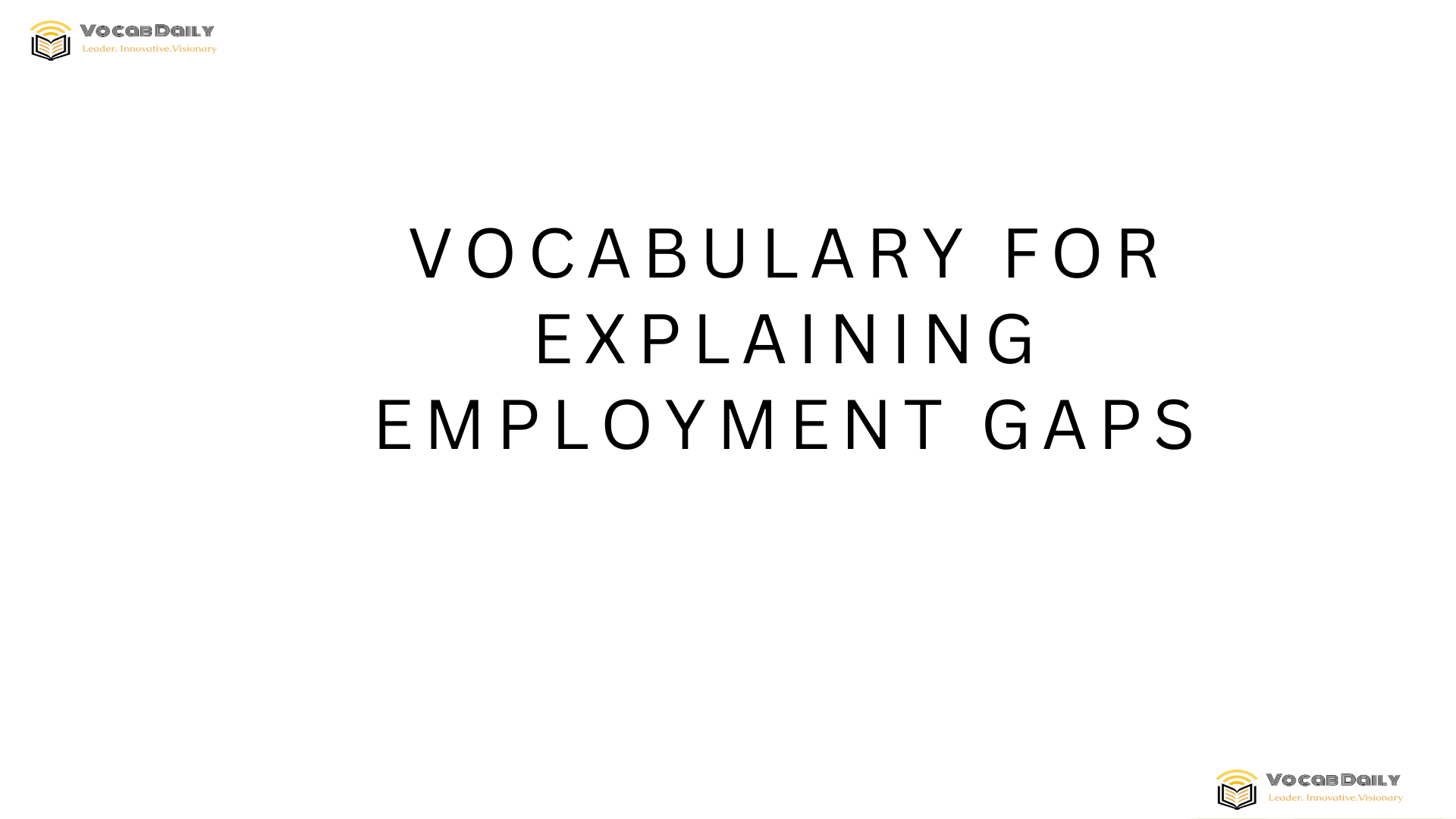
Vocabulary for Explaining Employment Gaps
•
Vocabulary for Explaining Employment Gaps Employment gaps are common in many career paths, and explaining them effectively during an interview can make a significant difference in how potential employers perceive your application. Using the right vocabulary to describe these periods helps you communicate positively and professionally. This article will guide you through useful terms…
-
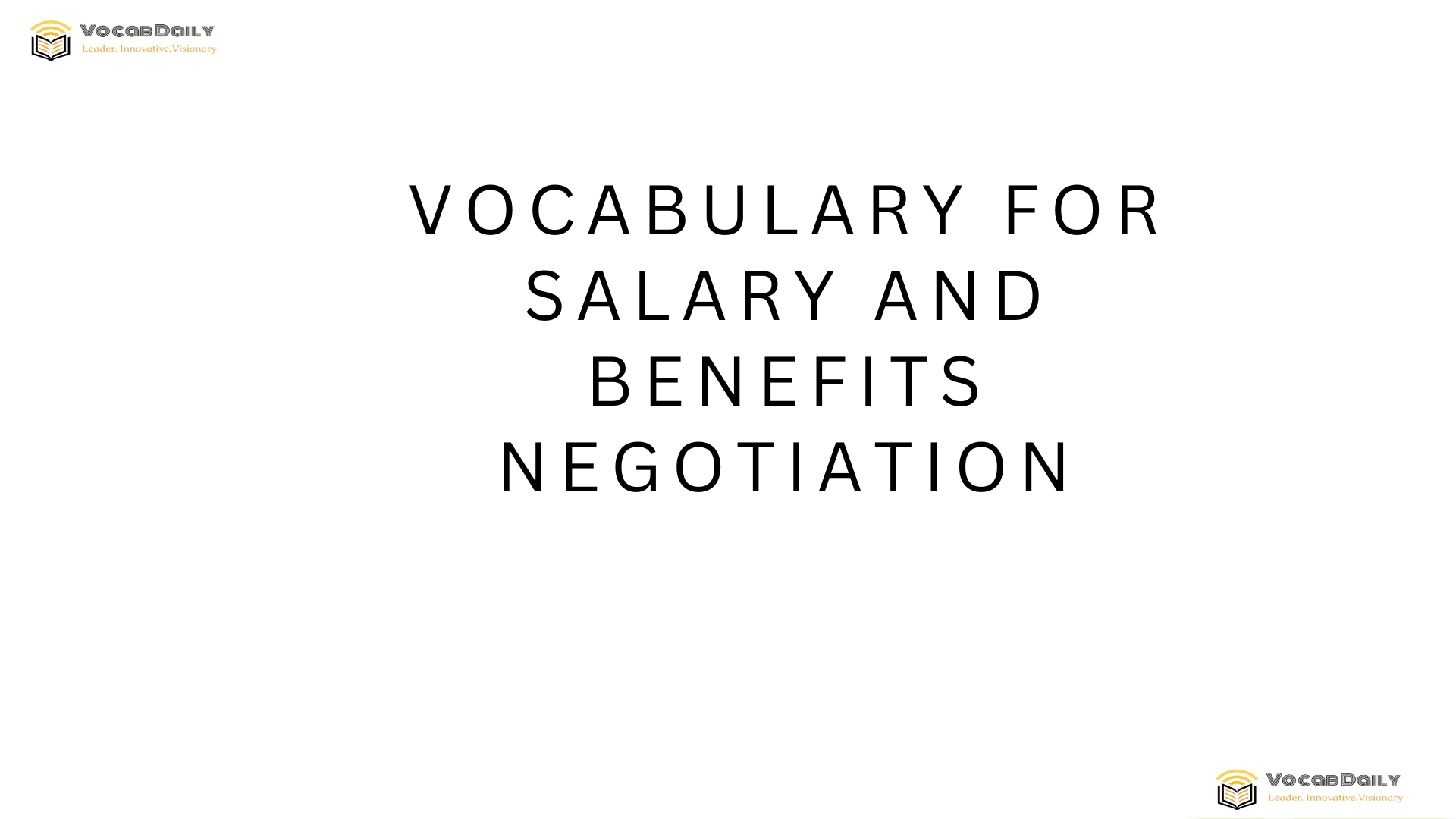
Vocabulary for Salary and Benefits Negotiation
•
Understanding Key Terms in Salary Negotiation When preparing for a job interview, one of the most important discussions you might have is about salary and benefits. Knowing the right vocabulary helps you communicate clearly and confidently. Salary negotiation involves various terms you should be familiar with, from base pay to bonuses. Understanding these terms…